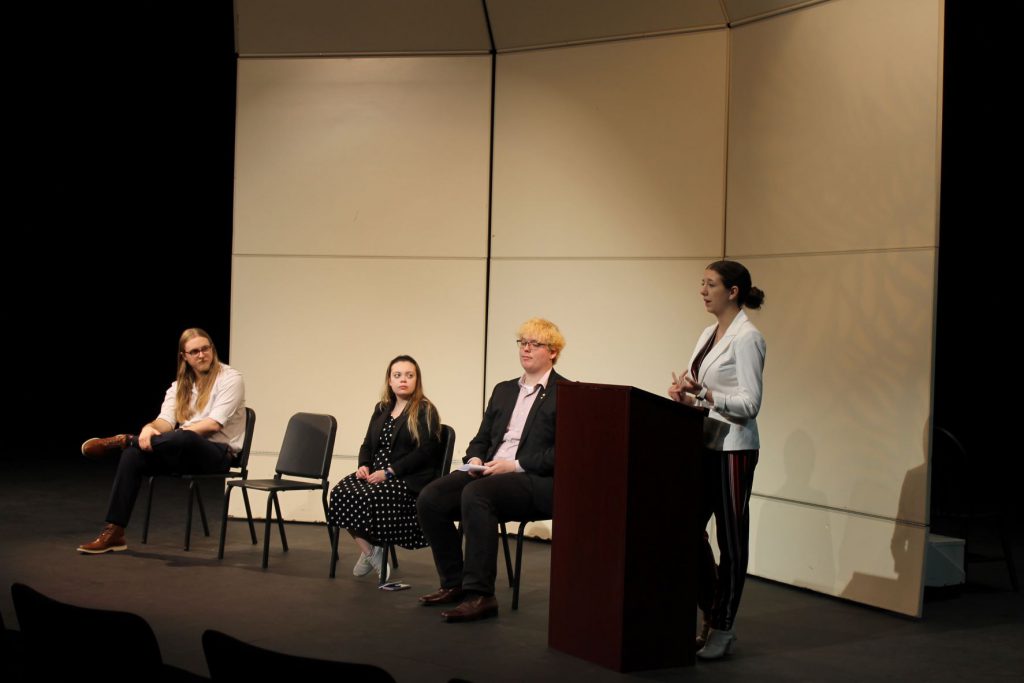A survey regarding public opinion about COVID-19 and the vaccination process was compiled by Chronicle staff and shared via email and social media to the VWU campus community. It was completed from March 25 – April 2. There were 157 total responses: 107 (68.2%) students, 30 (19.1%) faculty and 20 (12.7%) staff. 79.6% of respondents live in Virginia while a majority of the out-of-state respondents were from Maryland, New Jersey, North Carolina and Pennsylvania.
Respondents were asked a series of questions via Google Forms. Results showed that the campus overall has not started the vaccination process but are overwhelmingly in favor of the vaccine and do not have a strong preference for which vaccine they receive.
In the survey, 53.5% of respondents stated that they have not started the vaccination process, 13.4% have finished, and 33.1% have started either by scheduling an appointment or are partially vaccinated. When asked their eligibility, 35.7% said they were not currently eligible while 25.5% stated that they were because of their job, 17.2% listed a pre-existing condition, 10.2% said random opportunity and 4.5% listed age.
As of April 6, the Virginia Public Access Project has calculated using information from the Virginia Department of Health that 33.2% of Virginians have been given at least one dose of the vaccine while 18.4% or nearly 1.6 million Virginians are fully vaccinated.
Adjunct professor Dr. Tanya Arney ‘09 has work and educational experience in the public health profession. She also taught in the Masters of Health Administration program at Virginia Commonwealth University as well as social ethics at the Tidewater Community College Norfolk campus. The course she teaches at VWU, SOC 351 Medical Sociology, involves examining social and economic aspects as well as the theory and practicality of public health.
Like most other things, COVID-19 has had an impact on the layout of the class. Arney tested positive with COVID-19 right before the start of the semester, which meant she had to teach completely remotely during that duration of time. Even when she was not sick, it was still a challenging experience.
“In all honesty, I wasn’t prepared for what the pandemic has presented – and then trying to teach online. It’s like Whack-a-Mole; every time somebody gets released to come back to class, somebody else goes out,” Arney said. “It breaks my heart, quite frankly, because the students I have right now are not getting the same experience. So, I wish I could do like part two, post pandemic. I think we’re all trying to just navigate through this challenging time.”
Arney received the Pfizer-BioNTech vaccine through Kroger pharmacy and explained the importance of trusting the vaccination as well as the regulatory process. “People say ‘Oh, they took it to the market and they didn’t take the time.’ Vaccines take years and years, but the FDA has through the emergency use authorizations [approved three types of COVID-19 vaccinations], and that is still a very highly strict process,” Arney stated. “Yes, they are able to push them through, but you’re talking about hundreds of people [working on this].” She also mentioned that the company she works for, which put the first HIV test on the market, has redirected all of their resources to COVID-19 and has been working around the clock.
The answer to the dichotomous question, what is your view on the vaccine? 79% said they were in favor (I have received / will receive the vaccine) while 21% said they were not In favor (I do not wish to receive the vaccine at this time). Additionally, the Pfizer-BioNTech vaccine was the most preferred with 22.8%, then 11% for Moderna, 9.4% for Johnson & Johnson and 52% stated no preference.
The survey allowed the option for respondents who were not in favor of the vaccine to describe why. Responses included “I don’t need it. I’m not at risk and I’d rather not take a risk on a new vaccine for a disease that I’m incredibly unlikely to die from,” “I feel that it’s not safe and unnatural; if they could come out with a vaccine that fast then why aren’t other vaccines created for equivalent serious diseases or viruses,” and “I would rather people who need it or are higher risk to get it before me.”
When asked what her message would be to those that are hesitant to get the vaccine, Arney responded that it is still better to vaccinate because previous research has shown that it assists in eradicating diseases. “I don’t think we are going to get rid of this virus. Viruses are viruses, but as medical technology enhances and evolves we can do better and lessen that,” Arney said. “Like HIV, you can have that and live for many years with a good quality life. The alternative is worse.”
In reference to people afraid of the vaccine and its side effects, she implores those to consider the regulatory process of the Food and Drug Administration. “There are so many things that are rushed to market and my biggest argument against it would be, you don’t think twice about a vitamin, vitamins aren’t regulated at all. Or if you are trying to lose weight, you’re willing to take an addictive stimulant and there is no regulation around that, but you are afraid to take something that has gone through a very stringent protocol,” Arney said.
She also stated that the United States is very lucky with having the FDA because they are extremely strict regarding their processes. “The thing is there will always be a risk,” Arney said. “There is a risk when you go into the doctor’s office for surgery, but you have to weigh the risks and benefits.”
By Connor Merk
ccmerk@vwu.edu

